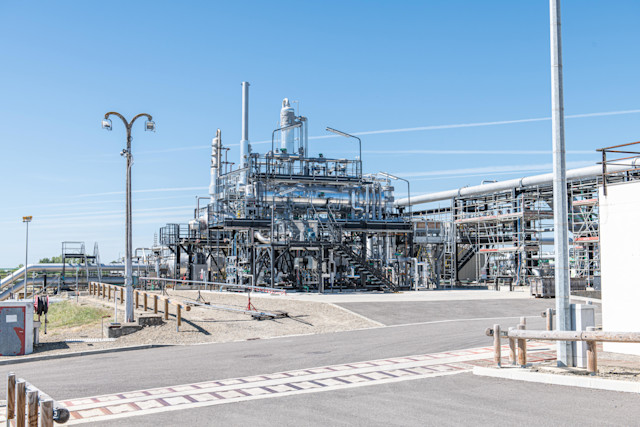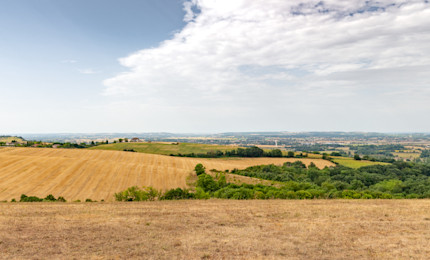Urgence gaz 0 800 028 800

Understanding energy sobriety: definition, challenges and best practices
Although the need to move our energy mix towards renewable, lower-carbon energies is already largely recognised, the war in Ukraine and the ensuing energy crisis have made Europeans even more acutely aware of their dependence on imported fossil fuels. Energy sobriety can provide rapid solutions to supply challenges in the short term, while firmly establishing more virtuous practices over the long term.
What is energy sobriety?
Energy sobriety consists in reducing one’s energy consumption by avoiding excess and waste: lowering heating, disconnecting unused appliances, etc. It also involves pooling some necessary energy expenditure, such as choosing to use public transport or car sharing for example.
Sobriety should not be confused with energy efficiency. Although these two approaches are both aimed at better energy management, their scopes of action are not the same. Indeed, energy efficiency seeks to reduce consumption thanks to better performance of equipment, by design. For example, better insulated homes, less energy-intensive appliances, or the recovery of unavoidable energies (or energy losses). Energy sobriety and energy efficiency are in fact complementary approaches to moving towards more intelligent consumption.
Why is energy sobriety in the news?
In early 2022, the outbreak of war in Ukraine had an enormous impact on the European energy market. Deliveries of natural gas from Russia almost completely stopped, prompting European countries to quickly have to find new sources of supply in anticipation of the winter and the corresponding consumption peak. These new imports have changed European gas flows and reduced the number of importers, thereby increasing our energy dependence.
In order to reduce pressure on the energy grids, a national energy sobriety plan was announced on 6 October 2022 by the government to reduce overall electricity and gas consumption. This plan aims to secure our supply throughout the winter in order to avoid power cuts of electricity or gas having a negative impact on consumers and the economy. In the longer term, putting in place energy sobriety measures is also a way of reducing our environmental impact and promoting the development of renewable energies such as biomethane in our regions.
Measures of the national energy sobriety plan
The energy sobriety plan aims to reduce by 10% our overall energy consumption by 2024. To achieve this objective, the sobriety plan sets out 15 measures to reduce energy consumption, some of which are intended for specific business sectors while others concern the entire French population.
A maximum temperature of 19°C in offices, a reduction to 16°C at night and to 8°C when the building is closed for more than 3 days.
If possible, delay the start and accelerate the end of the heating period by 15 days.
Reduce the use of domestic hot water in offices.
4. Promote car sharing, the train and public transport rather than flying or individual car use.
5. Reduce heating to 18°C in government offices and work according to staggered timetables on days of high strain on the electricity grid.
6. Encourage government workers to telecommute to reduce fuel consumption through an increase in the flat-rate telecommuting allowance covering the increase in energy prices.
7. Set the speed limit on motorways to 110 km/h for non-urgent business travel.
8. Reduce the electricity consumption of street lighting.
9. Reduce the temperature of gyms by 2°C and the water temperature of swimming pools by 1°C.
10. Reduce the amount of heated surface area by grouping public services.
11. The “Companies commit” platform identifies companies which are implementing commitments, particularly relating to sobriety: reduction in lighting, management of heating and air conditioning, optimisation of travel.
12. Reduce the time flood lights are used before and after matches.
13. Establishment of a sobriety bonus to encourage households that control their energy consumption.
14. Offer up to €9,000 in grants to install a heat pump in an individual home or to connect a collective housing building to a heat network.
15. Inform the French about the energy use forecast (see below on this page).
How to contribute to achieving energy sobriety?
Collective sobriety measures have a real impact and make it possible to reduce the strain on the gas grid in winter, thus avoiding the risk of interrupted supplies. The main consumers affected by these measures of last resort will be industrial actors, which could have consequences on their business and therefore on the national economy.
Écogaz: follow the gas grid forecast
To ensure everyone is able to participate pro-actively in the collective efforts, we have contributed with NaTran and ADEME to the deployment of the Écogaz initiative. This collaborative website aims to inform the general public of any strain on the gas grid and to temporarily call for additional sobriety efforts in the event of high strain.

This gas forecast has 4 alert levels:
Green: Consumption is reasonable, there is no strain on the grid.
Yellow: Consumption is high, strains are appearing on the gas grid. Encouragement to reduce consumption to relieve the grid.
Orange: Consumption is very high, the gas grid is extremely tense. Strong encouragement to reduce energy consumption to avoid gas reductions or a cut in supplies to industrial companies.
Red: The gas grid is in a critical situation. Reduction or cut-off orders are sent to the consumers in question. Very strong encouragement to drastically reduce consumption.
On the website, you can request to receive an SMS or email alert when the orange or red levels are reached in order to actively contribute to the collective effort.
Eco-friendly actions: 5 actions to save energy
Eco-friendly actions are measures within everyone’s reach, which contribute to reducing energy consumption. Five particularly effective actions have been identified by the government which has deployed the “Every action counts” campaign to raise awareness and encourage all citizens to apply them on a daily basis, and especially during periods of strain on the grid.
Set the heating to 19°C maximum. Reducing the heating by 1°C makes an energy saving of 7% per year.
Setting your water heater to 55°C maximum saves 10% per year. You should also be careful to take shorter showers.
Turning off devices when they are not used rather than leaving them on standby results in a 10% electricity saving per year.
Use electrical appliances outside peak hours (8:00 -13:00 / 18:00 - 20:00) and as a priority programme them to work in the afternoon or at night.
Installing a programmable thermostat allows you to control your energy consumption and reduce it by 15% per year.
Industrials, Teréga supports your move to energy sobriety
Teréga is adapting its service offering to provide its industrial customers connected to the gas grid with the support they need to control and reduce their gas consumption and move towards more sobriety. We also provide you with all the necessary explanations regarding the regulatory mechanisms of the energy sobriety plan.









